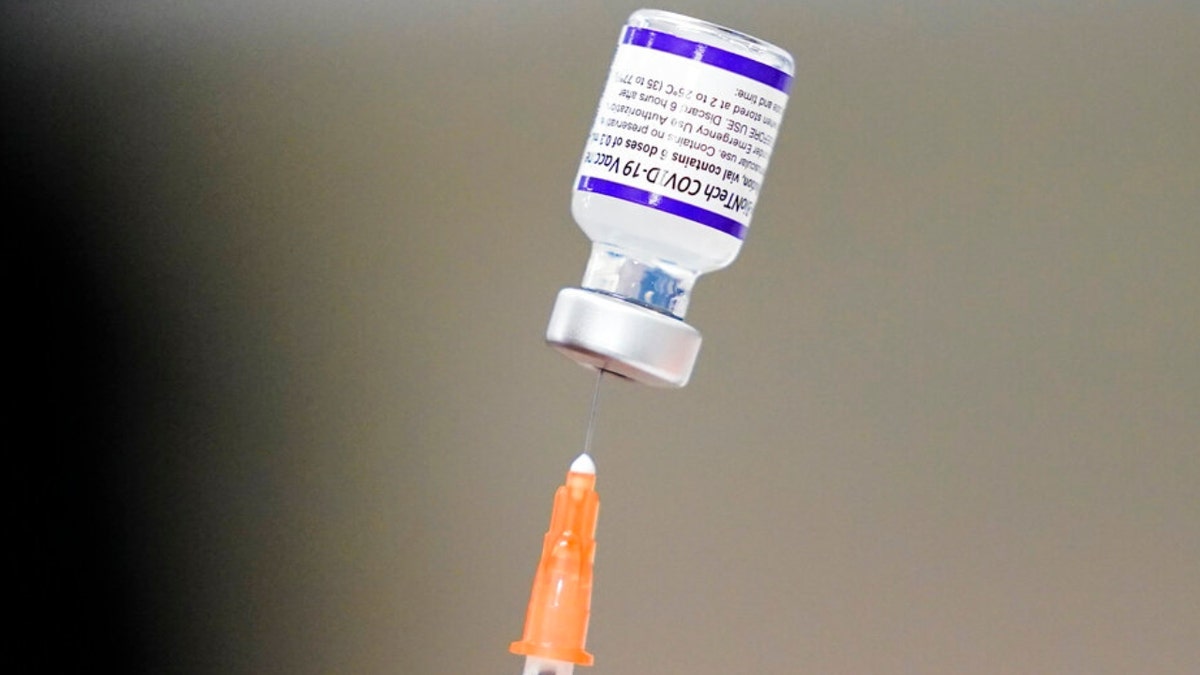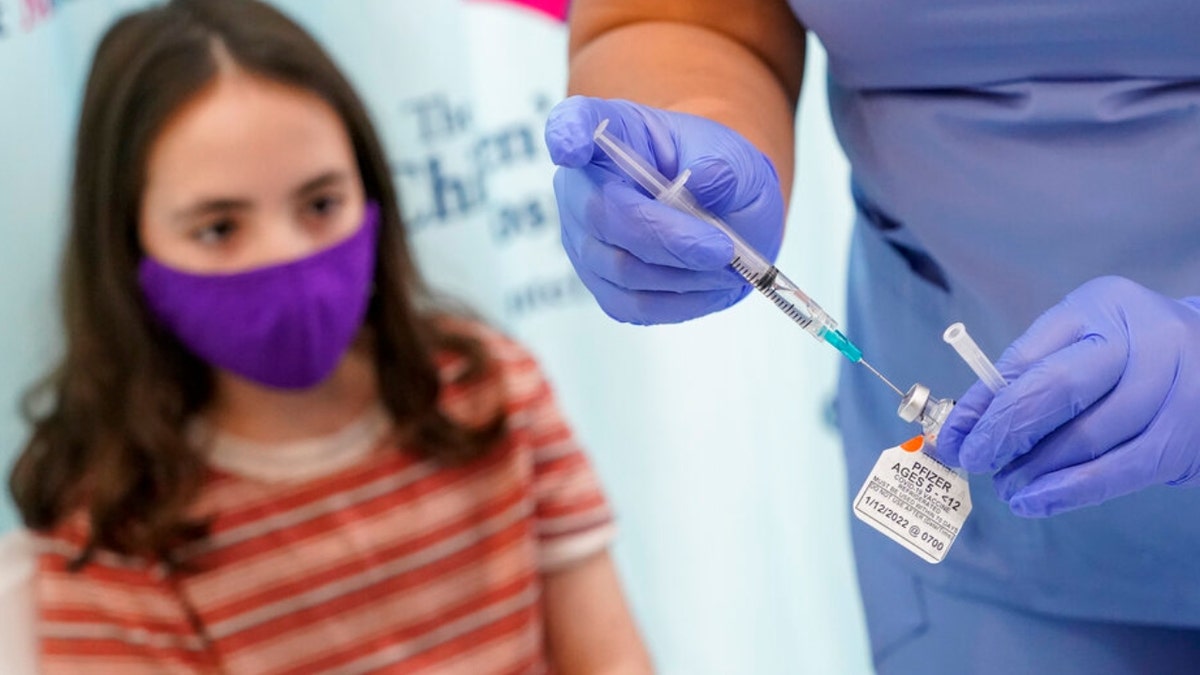A new test could shed light on whether you need a COVID vaccine booster
If you're wondering about when to get that next COVID-19 vaccine booster shot, or even if you need it, you're not alone. Now a new test is on the way that could offer answers to those questions.
Pfizer-BioNTech submitted an application to the U.S. Food and Drug Administration Tuesday, for children ages 5 through 11-years-old to receive the COVID-19 vaccine booster, the company announced.
In a statement, Pfizer said it submitted the application seeking approval under the Emergency Use Authorization after data from a study involving 4,500 children in the U.S., Finland, Poland, and Spain, seeking to determine the "safety, tolerability, and immunogenicity" of the vaccine produced a positive result.
"Data from this study demonstrated a strong immune response in this age group following a booster dose of the Pfizer-BioNTech COVID-19 Vaccine with no new safety signals," the company said.

FILE - The Pfizer logo is displayed at the company's headquarters, Feb. 5, 2021, in New York. (AP Photo/Mark Lennihan, File)
WHITE HOUSE ANNOUNCES NEW STEPS TO MAKE COVID-19 ORAL ANTIVIRALS EASIER TO ACCESS
The study included children in three distinct age groups: ages 5 to under 12 years; ages 2 to under 5 years; and ages 6 months to under 2 years.
Pfizer intends to release the data for the still-ongoing study of children 6 months to under 5 years old later in the year.
FAUCI: US IS 'CERTAINLY' OUT OF THE 'PANDEMIC PHASE'

FILE - A syringe is prepared with the Pfizer COVID-19 vaccine at a vaccination clinic at the Keystone First Wellness Center in Chester, Pa., on Dec. 15, 2021. ((AP Photo/Matt Rourke, File) )
Emergency approval from the FDA under the Emergency Use Authorization would not constitute a full vaccine approval and licensing from the FDA, it would only mean that the extenuating circumstances of the pandemic justify the rapid implementation of the vaccine.
"Submissions to pursue regulatory approvals in those countries where emergency use authorizations or equivalent were initially granted are planned," the company added.

Jamie Onofrio Franceschini, 11, watches as RN Rosemary Lantigua prepares a syringe with her first dose of the Pfizer-BioNTech COVID-19 vaccine for children five to 12 years at The Children's Hospital at Montefiore, Wednesday, Nov. 3, 2021, in the Bronx borough of New York. (AP Photo/Mary Altaffer)
COVID-19 SUBVARIANT XE: WHAT TO KNOW
The submission comes on the same day the Centers for Disease Control and Prevention released a study determining that three out of every four children have had coronavirus infections.
Pfizer listed fainting and several other side effects from receiving the Pfizer-BioNTech COVID-19 vaccine, including: injection site pain; tiredness; headache; muscle pain; chills; joint pain; fever; injection site swelling; injection site redness; nausea; feeling unwell; swollen lymph nodes (lymphadenopathy); decreased appetite; diarrhea; and vomiting.













































